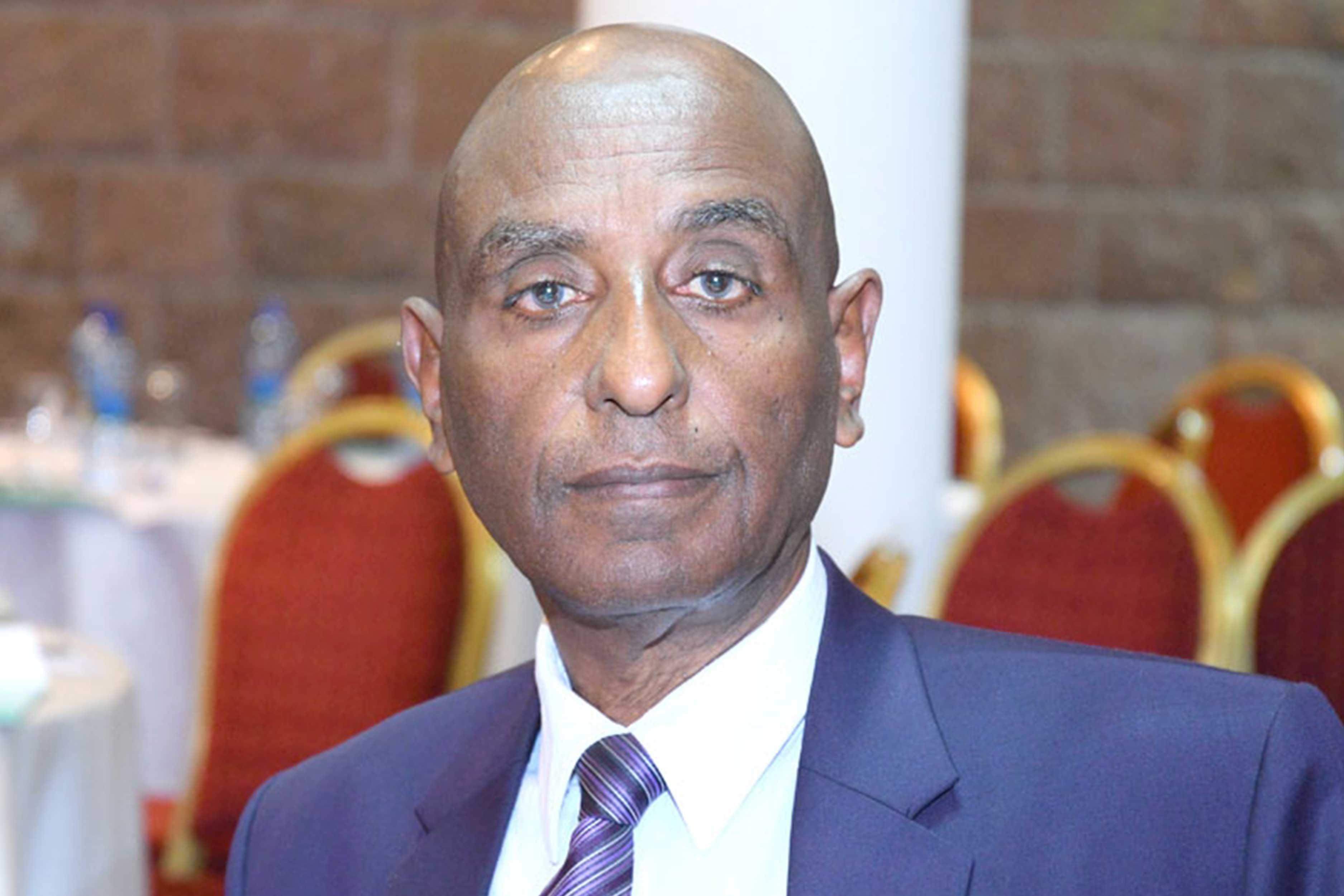
Fortune News | Oct 23,2018
Herve Milhade, the CEO of BGI Ethiopia, believes he is steering the company toward a more consumer-centric focus. He emphasises that his goal is not to be a leader in paying taxes but to “become the leader in the heart” of consumers. His tenure began as Ethiopia emerged from a bloody and brutal civil war in the North, after the signing of the Pretoria Accord, marking a landmark for the company. Milhade’s appointment coincided with the reopening of BGI Ethiopia’s Raya Brewery in Machew, Tigray Regional State, which had been closed due to the civil war in the North.
Under its French parent company, Castel Group, a stalwart in the African brewery market, the company has seen expansive growth and strategic acquisitions. The Group, a pioneering foreign investor since acquiring St. George, Ethiopia’s oldest brewery, nearly three decades ago, has spent over one billion euros across seven production sites. Its local subsidiary, BGI Ethiopia, is not only one of the notable employers in the economy, with more than 5,000 workers, but also a major taxpayer, contributing billions of Birr annually. The company’s portfolio includes popular brands like Zebidar, Raya, and Meta. It also operates Castel Winery, with a vineyard in Zeway, which was acquired through privatisation in 2012. The winery produces 12,000hctl of wine annually under the Acacia and Rift Valley brands, which complements BGI’s extensive beverage operations.
The company expanded its footprint by acquiring Meta Abo Brewery from the British multinational beverage alcohol company Diageo, cementing its dominance in the beer market, although it has surrendered its market lead to its contender, Heineken Ethiopia. The beer market has been booming but also faced intensifying competition and a shifting regulatory reality. Under Milhade’s watch, BGI focuses on sustainability and reinforces its role as a key economic player. With Meta Abo under its belt, BGI’s production capacity is set to increase from 5.2 million hectoliters to 6.4 million hectoliters. As BGI Ethiopia continues to expand its operations and sharpen its strategies under Milhade’s leadership, the company is determined to reclaim its lead in production and win over the hearts of consumers across Ethiopia and beyond.
In an exclusive interview with Tizita Shewaferaw, our editor-in-chief, Milhade shared his insights on his vision for BGI.
Fortune: In the face of pent-up competition from foreign investments and emerging domestic players, how have you been strategising to reclaim your market lead once was BGI-Ethiopia's forte?
Herve Milhade: We have developed strong products that resonate with consumers. Investing in both production and distribution capacities has been paramount. We have strengthened our brand presence, invested in production tools locally, and optimised our distribution model for efficiency and competitiveness.
Q: Have you overcome constraints in scaling local sourcing? What impact do these programs have on the agricultural sector?
Sourcing raw materials locally, such as malt and maise, is not just our interest — it is also our competitors'. Ensuring the quality of local supplies is crucial, and we have formed strong relationships with our suppliers. However, we recognise the need to invest in and support them to match our production needs. While we are not directly involved in upstream agricultural development, I am open to working with government agencies to have a global outlook and drive positive change in this sector.
Q: What investments and infrastructure upgrades are in store to double production capacity by 2028?
Our ambition is to reclaim market leadership, which is anticipated to experience double-digit growth in the coming years. We aim to double our current production to about 10 million hectolitres. We are investing in our organisation — ensuring we have the right employees with the right skills and behaviour. Through our CSR projects, we plan to extend beyond community initiatives to prioritise the safety of our employees, raise their skills, and provide fair compensation and benefits. Another focus area is the full review of our distribution model. Our products need to be available to all consumers, which requires us to adjust our distribution methods.
The company is committed to investing between 60 million and 100 million euros annually to prepare for this anticipated growth. However, the exact cost of the entire project is difficult to determine at this stage.
Q: What adjustments have you made to your business strategies in response to the recent regulatory changes, such as the increase in excise taxes and restrictions on alcohol advertising?
The excise tax pushes us to localise our supplies. We have always put our energy into localising the brew and packaging. We have adapted our advertising strategies to comply with regulations while maintaining brand visibility.
Q: Would you say it has been a challenge?
Selling beer is always challenging. But the fact that advertising is banned on one medium will not change the whole market because the rules apply to the industry. Through the Ethiopian Brewers Association, we are engaging with the authorities to help us understand the rationale behind and cope with it.
Q: When undergoing a major distribution model change, can you be open about the legal disputes with some of your former agents who are affected? To what degree have the company's business operations and strategic plans been impacted?
We expanded our network to include more than 100 agents, up from 35. While most embraced this change, some chose not to align with our new direction. It is sad that they left the company after many years and joined the competition. But this is the game, and I accept it. I want to build the most efficient team to ensure that our consumers will find our product affordable and available across the country.
Q: What alternative marketing strategies have you adopted?
We have other ways to reach out to our consumers. We have focused on product quality. If someone loves the product, they are likely to return next time. We also have on-site activations to ensure visibility and engagement tailored to consumers, encompassing regional variations and demographics. Leveraging social media platforms allows us to interact directly with them and build brand affinity.
Q: Do you have any plans for geographic or market segment expansion? How do you balance these growth plans with customer satisfaction?
We are currently focused on consolidating our position in the draught beer market, where we are leading. Then, we will expand our offerings in the bottled beer segment, with plans to invest in packaging and production facilities. We aim to grow strategically while upholding our commitment to customer satisfaction. Over the following years, we will probably heavily invest in Meta, the site we recently acquired. It will become the largest within our organisation. We still have some space to increase production capacity in our sites. But eventually, we will have to start from scratch and build a new plant.
Q: Are there plans to introduce automation in your breweries?
We are exploring the integration of automation into our factories. However, we want to strike a cautious balance between technology and human skills. While automation can streamline simple processes, we recognise the importance of human expertise in certain areas. After all, having the right technology is essential, but it is equally important to have skilled personnel to operate and maintain it effectively.
Q: With a shift in consumer preferences towards premium and draught beers, how are you rebranding product offerings to cater to the evolving market demand?
It is not so much a shift for us as it is a natural market evolution. We adapt to it by introducing various bottled and draught beers, each catering to different market segments with different price points.
Q: How does BGI handle internal organisational adjustments and workforce transitions? I understand there are labour issues here.
We uphold certain principles about employee behaviour. Those who do not align with our values are no longer welcome in the company. We have had to reshape our organisation to suit our future needs better. Some individuals have left the company due to redundancy or misalignment with our future direction, but they have received fair compensation packages.
Q: Considering the recent mandate to relocate major industries from the city centre, what sustainability initiatives have you implemented in brewing processes and supply chain management?
It is understandable and aligns with both environmental and logistical considerations. Operating within the city presents difficulties for neighbouring communities and our water supply needs. Water supply is an issue here; we need much of it to produce beer. We have anticipated this and decided to relocate the whole plant outside the city and operate more sustainably. Our investments in water treatment equipment across all our sites ensure the brewing processes have a minimum environmental impact. We also utilise spent grain as fertiliser for our vineyard.
Q: When you were selling your headquarters building, negotiations with the prospective buyer, Purpose Black Ethiopia, broke down. What went wrong?
Nearly a year ago, Purpose Black showed interest when we were looking for potential buyers for the site [the oldest plant near Mexico Square]. We decided to go with them. I cannot comment on the details, as the court handles that, but I can discuss some principles. BGI Ethiopia is a solid and serious company looking for buyers who can finance the purchase; this was obviously not the case. I hope people will be clever and compliant enough to come back, solve this dispute and continue to grow the business. We are looking for an amicable closure because we are selling this building and need to make it available for those who can buy it.
Q: Are any efforts being made to resolve the conflict outside the courtroom?
If it is possible, this is what I want.
Q: Following the subsequent legal dispute, there were issues of not being transparent about the deal with those impacted directly or indirectly. In the process, your brand's reputation has been on the line. Would you agree?
Transparency has always been a principle for us. We believe it maintains trust and protects our reputation. We will continue to engage with stakeholders proactively, keeping them informed of developments and addressing any concerns they may have.
Q: Although pioneers in the foreign direct investment front and have been in the market for nearly three decades, the problem of profit repatriation has never been so profound. Do you consider this as your most pressing issue?
The shortage of foreign currency is indeed a critical issue for us. As an expanding business, we require buying raw materials, acquiring technology, and spending on equipment, some of which may need to be imported. The scarcity of foreign currency not only incurs costs but also affects our competitiveness in the market. Ultimately, this impacts consumers as we may not be able to offer products at competitive prices. The government must understand that foreign investors like BGI contribute to the country's economy. Striking a balance between taxation and facilitating business growth is important. Excessive taxation can hinder investment and ultimately reduce tax revenues. We advocate for reasonable tax policies supporting businesses and the government's revenue objectives. Achieving this balance will contribute to a thriving economy and sustainable development for all stakeholders.
Q: In the meantime, you have so much profit in Birr in your account whose value is eroding due to runaway inflation and exchange rate changes? Are you not worried?
We focus on using our available funds to continue investing in our growth initiatives. However, from the perspective of foreign investors, there is a level of frustration due to the difficulties in repatriating dividends. This issue needs to be addressed through dialogue with the authorities to ensure a conducive investment environment. We are engaging with relevant stakeholders, including government bodies and industry associations, to advocate for solutions that benefit investors and the country's development.
Q: Do you find yourself in despair due to the responses from the authorities not coming in time?
While ongoing discussions with authorities and industry stakeholders are promising, tangible progress is yet to be seen. We hope appropriate measures will be taken to address the forex shortages and create a more favourable investment climate.
Q: To what degree have your operations, market, and revenue been impacted by logistical hurdles caused by insecurities in major markets such as Tigray, Amhara, and Oromia regional states?
Whenever we have logistical difficulties with supplies because the area is not secure, we damage the business - because we are not selling ideas, we are selling beers. This is a major concern for us and the investors.
Q: Are there any upcoming new products consumers should expect?
We will surprise the market by offering products that they will love. Our research involves understanding what people want and how they consume it, as well as delivering a relevant portfolio to meet those needs.
PUBLISHED ON
May 11,2024 [ VOL
25 , NO
1254]

Fortune News | Jun 23,2019

Fortune News | May 02,2020

Fortune News | Jan 25,2020

Radar | Apr 17,2021

Fortune News | May 11,2019

Dec 22 , 2024 . By TIZITA SHEWAFERAW
Charged with transforming colossal state-owned enterprises into modern and competitiv...

Aug 18 , 2024 . By AKSAH ITALO
Although predictable Yonas Zerihun's job in the ride-hailing service is not immune to...

Jul 28 , 2024 . By TIZITA SHEWAFERAW
Unhabitual, perhaps too many, Samuel Gebreyohannes, 38, used to occasionally enjoy a couple of beers at breakfast. However, he recently swit...

Jul 13 , 2024 . By AKSAH ITALO
Investors who rely on tractors, trucks, and field vehicles for commuting, transporting commodities, and f...

Nov 1 , 2025
The National Bank of Ethiopia (NBE) issued a statement two weeks ago that appeared to...

Oct 25 , 2025
The regulatory machinery is on overdrive. In only two years, no fewer than 35 new pro...

Oct 18 , 2025
The political establishment, notably the ruling party and its top brass, has become p...

Oct 11 , 2025
Ladislas Farago, a roving Associated Press (AP) correspondent, arrived in Ethiopia in...